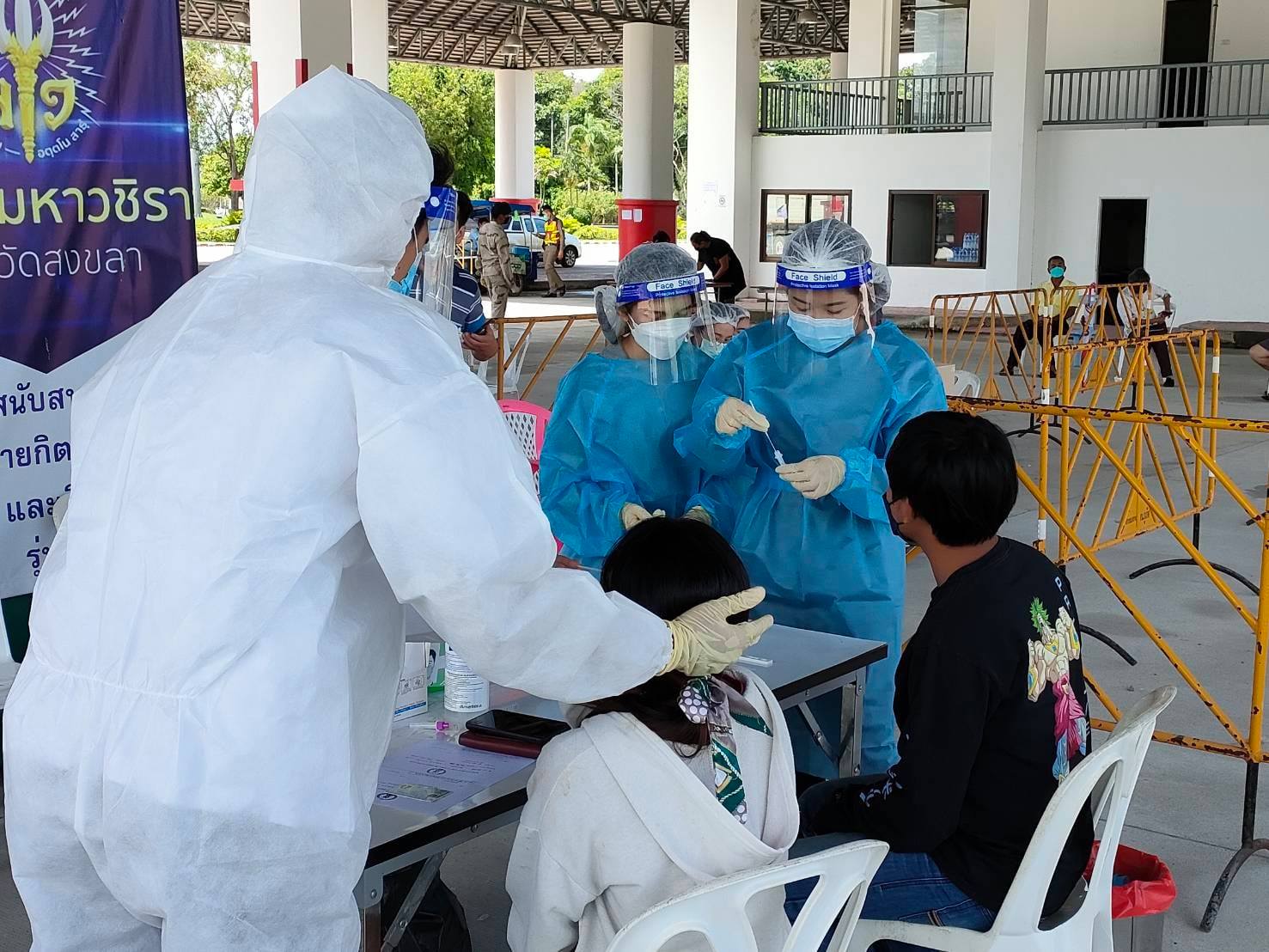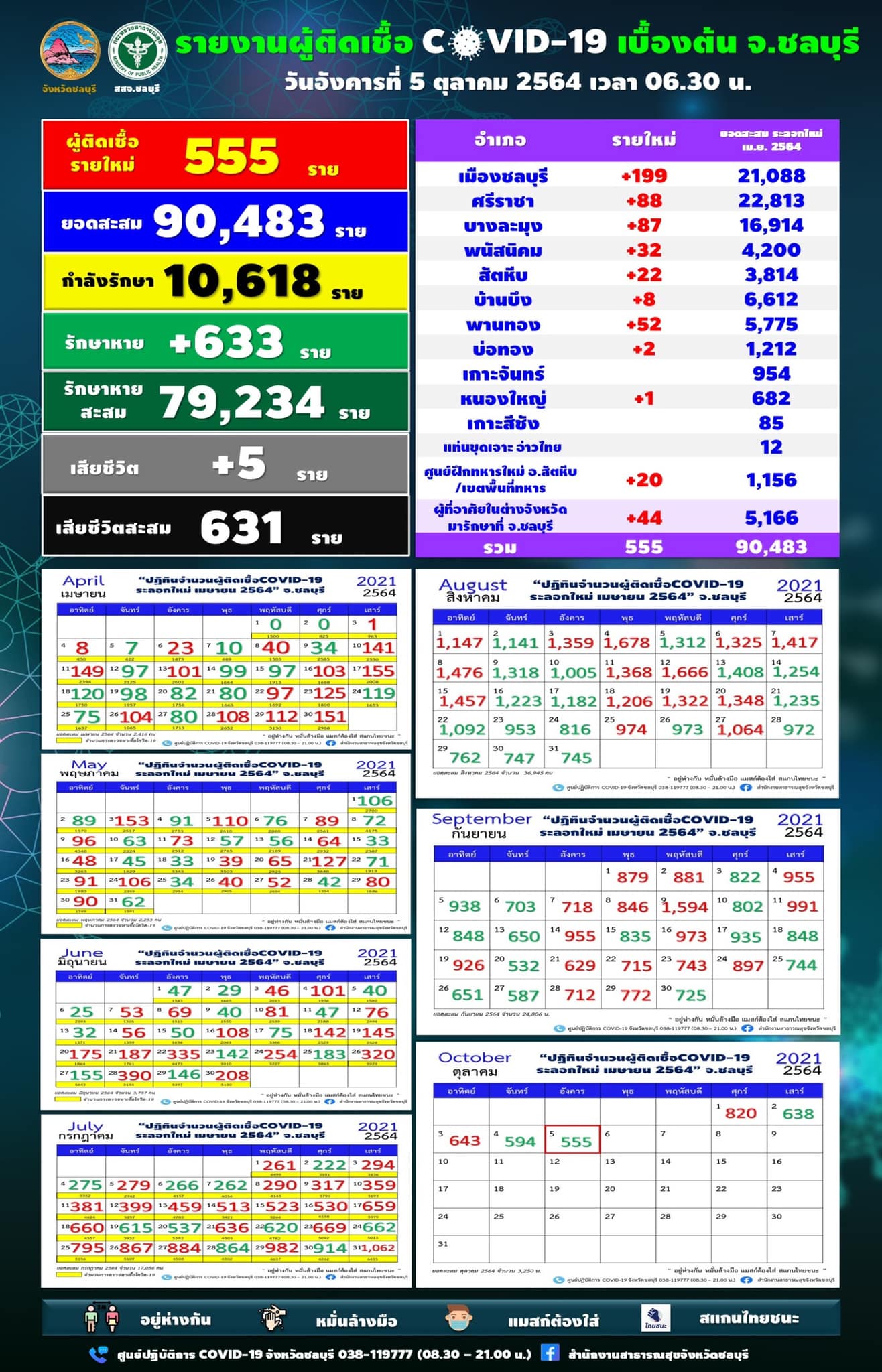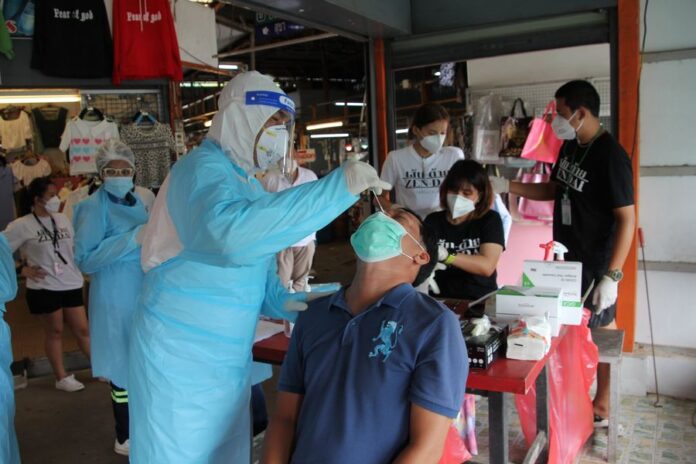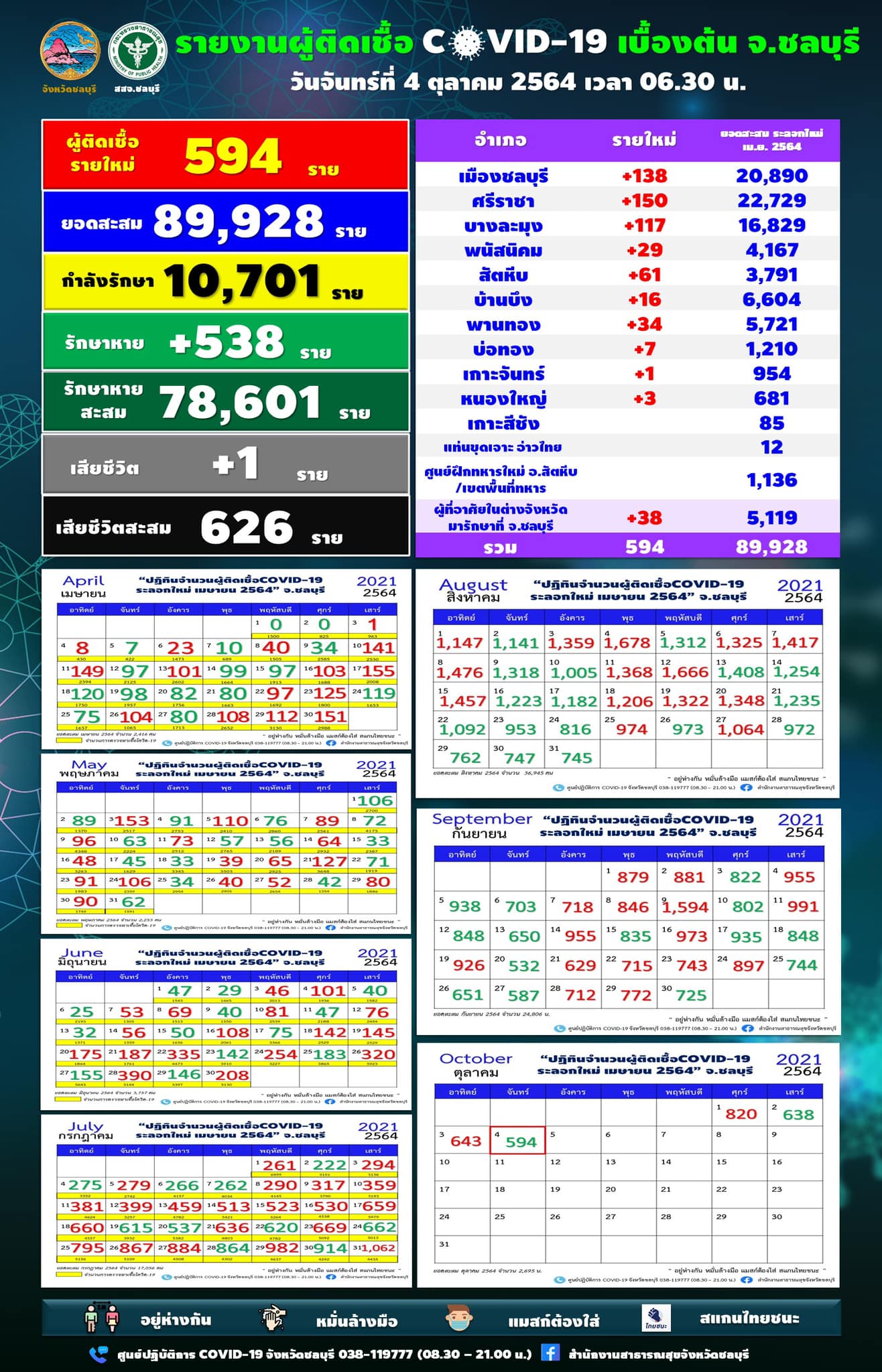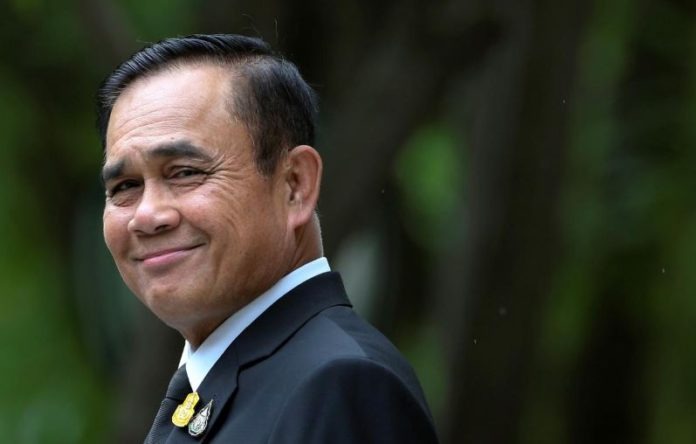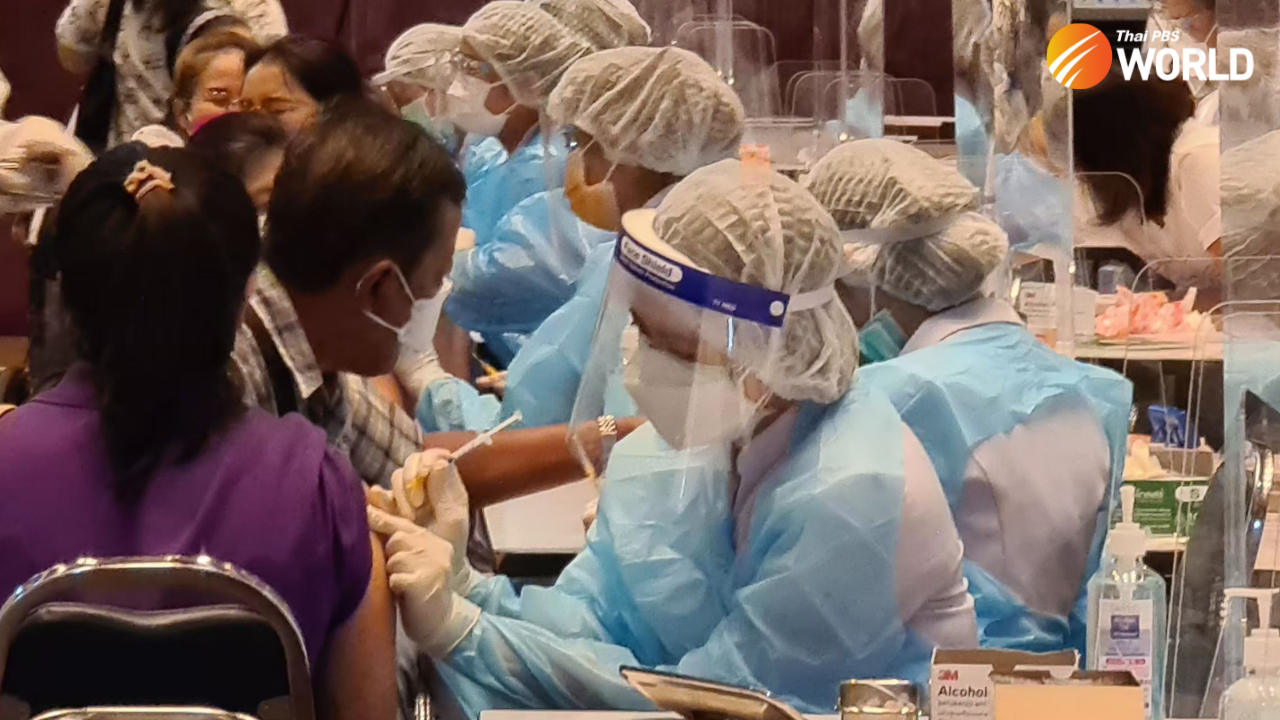The Phuket Sandbox only achieved 38,000 visitors in its opening three months, nearly 20% of whom were returning Thais while the scheme has generated a large amount of criticism and negative reaction from both the international travel industry and tourists taking part for being too regulated, complicated and in particular, for the excessive cost and frequency of Covid 19 PCR tests for already fully vaccinated visitors.
Amid a tourism industry in crisis and a disappointing first three months for the Phuket Sandbox with dwindling levels of visitors amounting to only 38% of the target set by the Tourism Authority of Thailand (TAT) at the outset, there is growing concern that plans being proposed by the country's tourism agency for a shift away from mass-market tourism to a new 'high quality' model may be exacerbating the situation which has already seen 3 million out of 4.7 million workers in the industry laid off and seen Patong, the former thriving nightlife resort on Phuket, described last weekend by the Progressive Movement champion and former MP, Pannika Wanich, as a 'cemetery'.
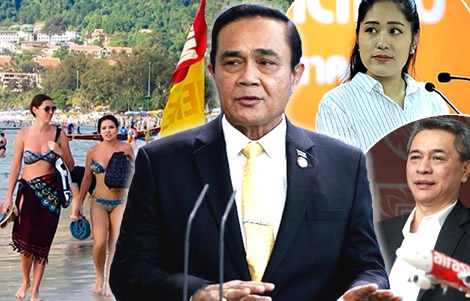
The Thai government through the Centre for Economic Situation Administration (CESA), on Thursday last, gave the go-ahead for another tourism initiative based on the Phuket Sandbox which it claims will generate ฿60 billion over the High Season period beginning on October 1st to the end of March 2022.
The target for the new initiative which was heralded by Prime Minister Prayut Chan ocha on Friday, in a social media post, is 1 million visitors over the next 6 months to the holiday resort aided by a resumption of package tours, flights from Russia and a relaxation of some of the most irksome restrictions which have been identified by travellers so far under the scheme.
Tourism Authority of Thailand using the Phuket Sandbox to pilot a shift in the kingdom's tourism model away from the old mass tourism one
The Phuket Sandbox scheme has had a mixed reaction since its launch on July 1st with criticism of the scheme from both tourists who participated in it and from within the tourism industry itself centred on the prohibitive cost and hyper nature of COVID-19 testing as well as the demanding Certificate of Entry system which Thai Examiner surveys are showing automatically exclude over 85% of former tourists and regular visitors to Thailand at the current time.
There is also concern that the Tourism Authority of Thailand (TAT) and government agencies appear to be intent on using the pandemic crisis to shift the nature of tourism in Thailand away from a low cost, mass-market model which had made the kingdom a popular world haven for holidaymakers and party goers to a new high quality and high cost one.
Small business owners on Phuket say the scheme only benefits expensive hotels and resorts on the island
In Phuket itself, this has very much become a political issue with thousands of small entrepreneurs and unemployed workers in the island feeling excluded from the Sandbox scheme which they say only benefits a tiny coterie of expensive hotel properties and wealthy investors on the island.
The new approach is also quickly alienating the kingdom's formerly loyal market of millions of regular visitors to Thailand, a pool that consists of up to 10 million people who have already begun to look elsewhere.
The initiative is coming at a time when confidence in the government's management of the economy, particularly the foreign tourism industry in the kingdom, is at a low ebb.
The Executive Chairman of Thailand's Air Asia, Mr Tassapon Bijleveld, recently castigated the government for setting unrealistic targets and then not achieving them.
This was in the context of the recently postponed reopening of Thailand scheduled for October 1st.
'If the government announced earlier the country would be ready for inbound tourists in December or even January, we would have no objection. We would have shifted our focus to the domestic market in the final quarter with full force,' said Mr Tassapon. 'The flip-flop worsens a situation which is already somehow at its worst, particularly regarding our financial stability.'
3 million employees in the tourism sector are still unemployed with talk of a shift to new tourism model
Last week, the Tourism Council of Thailand advised that 3 million of 4.7 million workers associated with the industry had lost their jobs so far in the COVID-19 crisis with foreign tourist numbers failing to match ever-dwindling projections and currently on track to be less than 1% of the numbers seen before the emergency was declared at the end of March 2020 producing massive government regulation of the sector which has effectively choked off 99% of its volume and which in some respects, appears to be taking on a more permanent aspect with talk of a new form of foreign tourism.
Indeed, figures for the Phuket Sandbox itself released at the end of last week showed only 38,000 arrivals since the scheme began on July 1st last.
At its outset, the Tourism Authority of Thailand projected a figure of 100,000 arrivals in the third quarter from July to October.
The scheme has been touted as a success given that it has taken place against the backdrop of a devastating virus wave and has seen a modest gain in arrivals from the first half of the year.
It is certainly no more than a modest one and should not be accepted as a model for the future.
19.7% of Phuket Sandbox visitors are returning Thais, most of these are not foreign tourists at all
The figures, up to last week, show that 19.7% of arrivals in Phuket or 7,494 out of 37,978 the figure recorded up to September 29th were, in fact, Thai nationals and not foreign tourists at all.
Nevertheless, Mr Yuthasak Supasorn of the Tourism Authority of Thailand (TAT) was in an upbeat mode after the Centre for Economic Situation Administration (CESA) meeting last week as he assessed the coming six months for the Phuket Sandbox or what is traditionally the high season for the tourist industry.
300,000 Russians projected to fly in on chartered flights over the coming 6 months according to TAT
The TAT boss revealed he expected half of the projected 1 million visitors to Phuket in the coming six months to come in package tours with 300,000 approximately from Russia while a total of 130,000 holidaymakers are expected to fly in from the UK and Nordic countries.
Currently, Thailand remains on the UK's red list tier of countries forcing returning visitors to quarantine on the return trip back to Britain but this is expected to change shortly as the UK moves to relax further COVID-19 restrictions and regulations.
Some positive news as Australian visitors will be free to travel from November 1st to Thailand and Phuket
Similarly, an announcement by the Australian government this week that fully vaccinated citizens will be able to travel in and out of the country from November 1st will benefit Thailand and particularly Phuket which is a firm favourite with Australian tourists and those with long-standing ties to the kingdom.
Speaking last week, Mr Yuthasak also suggested some easing of restrictions from Thai authorities including the prospect of some changes to the Certificate of Entry process which is now seen as the primary reason driving down potential visitors to the kingdom as western countries recover from the virus pandemic and international travel begins to resume.
Thai Examiner survey shows strong interest among past, regular visitors to Thailand but 85% will not come with the existing Certificate of Entry process
In a Thai Examiner survey (Survey Monkey) a massive 97.5% of respondents among people who are interested in visiting Thailand said they would consider positively a visit to the kingdom in the coming 12 months if the tortuous and expensive system, operated by the Ministry of Foreign Affairs, seeking prior approval to enter the country, was scrapped.
Only 15% of respondents said that they would consider visiting Thailand over the next 12 months with the requirement leaving 85% of potential travellers ruling out the option because of the Certificate of Entry barrier.
On the overall sample, 87.5% of Thai Examiner readers say they were considering a trip to Thailand in the next 12 months and 12.5% said they were not.
The sample of respondents was over 700 readers.
Talks to make the Certificate of Entry process more practical and convenient for Russian charter flights
Mr Yuthasak Supasorn said that, for now, an agreement had been reached with the Ministry of Foreign Affairs to approve groups for the Certificate of Entry scheme to facilitate package tours while Thailand has moved to approve commercial flights to fly in charter tours from Russia.
The Thai tourism agency is also working to reopen the market for Indian tourists to visit through the Phuket Sandbox as the prospects for a return of Chinese tourists has diminished.
Proposal to reduce the $100,000 insurance requirements to $50,000 being considered as well as the prohibitive costs of PCR COVID-19 testing
Mr Yuthasak revealed that following representations from the international tourism trade, his agency was in discussions with government departments about reducing the insurance cover requirement from $100,000 per person to $50,000 and also the prohibitive cost of RT-PCR testing for COVID-19 which forces visitors to pay no less than five times including before travelling to Thailand, before returning home and at various intervals in the first 14 days on Phuket.
Phuket reopening getting up holidaymakers noses with no less than 5 Covid-19 tests to be paid for
Canadians highlight the confusion, expense and hurdles facing tourists visiting Thailand right now
One industry source pointed out, in the last week, that the cost for the test here was twice as high as that charged to travellers in Europe.
Wealthy and fully vaccinated Canadian couple slammed the convoluted tourist reopening schemes
A wealthy and fully vaccinated Canadian couple revealed, in recent weeks, that they were required to fork out $1,100 or ฿ 35,000 in extra testing costs in addition to paying ฿16,000 already after they expressed a desire to move on to other parts of Thailand as part of their extended holiday in the kingdom.
This meant that they had to engage with other convoluted tourist reopening schemes each of which had a different set of rules and regulations.
Plan to allow potential tourists three months to apply for a Certificate of Entry from the Ministry of Foreign Affairs on the table as well as scrapping it altogether
Mr Yuthasak said he was also in discussion with the Ministry of Foreign Affairs concerning an extension of the period of time before which a potential tourist or visitor may apply for a Certificate of Entry from a current maximum period of 1 month to three months to allow travellers to plan and give them more time to meet the demanding and time-sensitive paperwork requirements.
On a more positive basis, he suggested that he has also raised the possibility of completely dismantling the Certificate of Entry process in the future.
To this end, he mentioned a project being worked on with the Ministry of Public Health to verify vaccine passports.
Tourist Levy transformed with a shift of emphasis from its previous purpose of providing badly needed automatic medical insurance cover for visitors
Last week, also, the Centre for Economic Situation Administration (CESA) approved the collection of a levy of ฿500 per arrival which is reportedly due to come into effect from the beginning of next year.
This is a measure that in its current state began being worked on in 2019. There have been various similar proposals stretching back nearly a decade.
The proposed levy has consistently been deferred or cancelled at the last minute despite firm deadlines being set in the past.
Many experts believe the latest proposal which, at one point, incorporated free medical and emergency insurance for all visiting tours has merits but this aspect of the scheme has been diluted over the past two years with Mr Yuthasak, last week, speaking volubly about the prospects for a potential ฿5 billion development fund using monies raised from 10 million visitors in 2022 as being available for the development of tourism in Thailand.
Tourism boss talks of the levy funding green and environmentally friendly projects as part of a new 'high quality' agenda for the tourism industry
He spoke of related green and environmental projects, far from the initial proposal for a scheme to prevent foreign tourists from being left in tragic life and death situations, which before April 2020 consistently generated bad international press for the kingdom as a dangerous and deadly place to vacation.
Tourism minister pushes end of year levy to include Covid 19 health insurance for visitors to Thailand
The new proposed levy, unveiled last Thursday, has also been increased from an earlier ฿300 figure quoted by Minister of Tourism and Sports Phiphat Ratchakitprakarn to ฿500.
Earlier in 2021 Tourism Minister spoke of a ฿100 to ฿200 charge with only ฿34 to cover insurance
The National Tourism Policy Committee had already agreed and signed off on the levy at ฿300 earlier in 2021 to be collected on arrival in Thailand and the Minister of Tourism and Sports, Mr Phiphat, had suggested it would come into effect in 2022.
Minister sees levy being imposed at points of entry by land, air and sea as visitors arrive in Thailand
Earlier in 2021, Minister Phiphat had suggested a level of between ฿100 and ฿200 per incoming tourist and it is understood that the insurance element for tourists would have only cost ฿34 per visitor.
The genesis of this current proposal goes back to 2019 when Naresuan University and the Office of the Insurance Commission were tasked by the government to come up with a viable plan for automatic health and accident insurance for all incoming visitors.
It, like all the other schemes, has been shelved and postponed several times since.
Mr Yuthasak last week still described the proposed levy as being at a 'concept' stage after key meeting
Indeed, after last week's meeting, it was described by Mr Yuthasak as still in a concept stage as he explained the implementation of the levy had to be discussed between government agencies.
He alluded to the creation of a fund committee and appeared uncertain as to how the levy would be collected.
He said the discussions would take place between his agency and the Ministry of Tourism and Sports.
He outlined a vision where such funding would be deployed to promote community and social enterprises aimed at developing tourism along the lines of a bio-circular or green economy.
He was clear that Thailand will be moving away from mass-market tourism towards this new 'higher quality' model.
'We want to focus on the quality market'
'The projects should be co-creations and the government should use the fund to support projects that can create an economic impact. The proportion of public-private financial support could be 50:50, 60:40 or 70:30, depending on how much we want to make those projects happen,' he explained. 'The additional cost won't have an impact on tourists as we want to focus on the quality market. We hope this fund will support a national tourism makeover creating more safe and clean places.'
The TAT boss appeared to emphasise the development and use of the funds raised from the levy to boost tourism infrastructure.
He said the funds would be used to support government initiatives as opposed to private sector schemes suggesting grants to match funds put up by local administrative organisations for projects.
Tourism situation in Phuket has become a political issue with thousands of small entrepreneurs sidelined
The situation in Phuket is also growing into a politically charged one with many feeling that the devastation of the island's economy is not being addressed substantially by the Phuket Sandbox in its current format with many small entrepreneurs on Phuket saying it is discriminatory.
Rising infections, bad press and burdensome rules still real threats to the slowing Phuket Sandbox
For many potential foreign tourists, the concession approved by authorities last week to allow the sale of alcohol in bars and restaurants from October 1st comes as a huge relief but the fact that such a ban was in place since the beginning of the year has angered many small business owners in Phuket.
Alcohol bans and other intrusive restrictions turning foreign tourists off Thailand, damaging its image
Such bans are still in place concerning other parts of Thailand and for many western holidaymakers, consumption of alcohol for leisure and with food is a sine qua non for any holiday.
New normal tourism may see foreign and local tourists segregated at Pattaya tourist attractions
Indeed many of the provisions imposed by different local authorities and the Tourism Authority of Thailand for various areas such as one proposal in Pattaya outlining segregation between foreign tourists and local Thai tourists at popular attractions, have caused consternation among international travel agents.
Disturbing story of Phuket guesthouse locked out overnight from its foreign tourist business, no notice
There is also resentment at the government's Safety and Health Administration (SHA) Plus scheme which excludes small guesthouses and hotels from participation in the Phuket Sandbox and other local tourist schemes by making it impossible for any incoming tourist to obtain a Certificate of Entry without booking with an approved hotel or resort.
Progressive Movement leader Pannika Wanich visits Phuket to meet people cut off from making a living
The scheme also imposed other uniform standards on participating hotels which reduces customer choice and raises prices.
Last weekend, Pannika Wanich of the Progressive Movement was in Phuket to observe the situation and spoke with some of the thousands of disgruntled small entrepreneurs on the island in the Andaman Sea.
They are less than impressed by the Phuket Sandbox in the last three months and say that the government and the Tourism Authority of Thailand have failed to grasp what made Phuket successful in the first place and saw it voted as one of the top ten destinations in Asia and the world in a series of Mastercard surveys.
Small business says the government is out of touch
They say it was the nightlife and the eclectic mix of hotels, resorts and entertainment venues that attracted the tourists and not primarily the 'high quality' experience currently being engineered by the government in Bangkok and the Tourism Authority of Thailand (TAT).
Small entrepreneurs are reported to have incurred expense in preparation for the July 1st reopening and cooperated with efforts to get staff fully vaccinated for what they anticipated would be at least see some form of return to normality.
It has not happened.
Traffic into the island, Thailand's leading holiday resort, has still been below 1% of what is normal. Indeed, many small businesses suggest restrictions applied this year including the closure of nightlife and up to October 1st have made the situation impossible.
The alcohol ban they believe was a huge mistake by the government and has turned off many potential international visitors.
'Patong is still a cemetery. There are still very few tourists,' declared opposition activist and former MP Pannika Wanich on a visit to Phuket
The lifting of the prohibition will help but one small pub manager in Phuket still believes that the continued prohibition on nightlife and the exclusionary nature of the certification system is still restricting the ability of small concerns to survive while the unemployed and business owners on the island are denied COVID-19 assistance measures.
Ms Pannika was also distinctly unimpressed.
She described Patong, once the heart of Phuket's nightlife industry, last weekend, as a cemetery.
'Today I walked along the streets of the tourist area. Patong is still a cemetery. There are still very few tourists. This is partly because of the complex and costly immigration measures for handling incoming tourists. Compared to other countries that have begun to open to tourism, such as in Europe. Another part is because the tourist attractions in Phuket for tourists have not returned yet. That's business, right. Now in one month, it will be Phuket's high season. People here are disheartened that this high season, Phuket is no place like it was in the past as the pubs and bars cannot open. The restaurants still close at 10 pm'.




